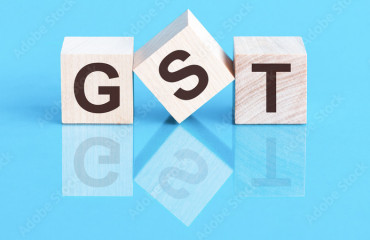
The growing consumption of ultra-processed food and aggressive marketing techniques by brands, such as pushing them to shelves labelled as healthy, have caught the government's eye. The Economic Survey 2024-25 highlighted the issue and suggested several corrective steps from awareness campaigns and stricter labelling to a ‘health tax’ to curb the excessive consumption of ultra-processed food.
The growing consumption of ultra-processed food and aggressive marketing techniques by brands, such as pushing them to shelves labelled as healthy, have caught the government's eye. The Economic Survey 2024-25 highlighted the issue and suggested several corrective steps from awareness campaigns and stricter labelling to a 'health tax' to curb the excessive consumption of ultra-processed food.
Many ultra-processed foods have much more than the recommended daily intake of sugar, salt and fat, a Mint analysis of 21 products in seven categories showed. While breakfast cereals and flavoured yoghurt have extremely high sugar content, ready-to-make upma/poha flashed red on all three fronts: sugar, salt, and fat. Soya millet chips, burger patties and fried chicken, while low in sugar, had high salt and fat. While sugar drinks in India carry an overall tax of 40% (28% GST plus 12% compensation tax), higher than the 10-20% tax that's common worldwide, ultra-processed and unhealthy foods do not face the same tax burden.
An item-wise GST analysis by Mint shows the variation in taxation. Sugary/caffeinated/carbonated beverages attract the highest tax, while fruit juice drinks, cakes and cereals, among other items, are taxed 12% or 18%. (An earlier analysis by Mint Plain Facts had found high sugar content in 'fruit drinks').
Also read: A practical guide to help you cut back on processed foods
Define and conquer
Public health experts said there was a need to categorise unhealthy food items properly and levy higher taxes. "We have a cess on some products like cola but not on all sugary drinks like fruit juices with added sugar. A more coordinated policy where a 'health tax' is imposed across all foods high in sugar, salt and fats would be useful. These must also include local savoury foods (like samosas, kachoris etc) and sweets," said Beena Varghese, a health economist and consultant at the World Health Organization.
Processed food has a sizable share of the consumption basket of Indians, according to the Household Consumption Expenditure Survey. The 2023-24 survey showed beverages, refreshments and processed food had a 9.8% share in rural areas and an 11.1% share in urban areas. However, processed food may not always be unhealthy. It is ultra-processed food, which undergoes heavy industrial processing and contains high levels of unsaturated fat, salt and sugar (HFSS) along with additives, that is the real worry. The lack of a clear definition leads to ultra-processed food being variously described as 'junk food', 'ready-to-eat food', 'processed food' and 'packaged food'.
Also read: All that you need to know about ultra-processed foods
Despite a significant increase in the consumption of ultra-processed food, regulations in India remain poor, with measures such as front-of-the-pack labelling and standardised ingredient labelling yet to be implemented. According to the YouGov-Mint-CPR Millennial Survey, conducted in July 2024, nearly a third of urban Indians felt it was okay to eat processed food frequently.
This increased consumption could exacerbate health problems in India. Nearly 40% of adult Indians already have abdominal obesity and 24% high cholesterol levels, according to a 2023 study by the Indian Council of Medical Research (ICMR).
A fine balance
While a 'health tax' is seen as a way to curb the consumption of ultra-processed food, research by Varghese and her co-authors in a 2023 paper titled 'Estimating the potential impact of a health tax on the demand for unhealthy food and beverages and on tax revenue in India' shows that an aggressive 20-30% health tax is be needed to curb demand significantly. However, a health tax, if levied, should be implemented carefully as it would disproportionately affect India's poor.
Also read: The new science on what ultra-processed food does to your brain
"Studies from other countries suggests there is a fall in consumption due to such taxation, but the fall is much more in the lower-income category, which is highly sensitive to price changes," said Soumitra Ghosh, a health economist and associate professor at the Tata Institute of Social Sciences. "One has to be careful about whom such a tax could end up hurting". Ghosh said India must learn from its experience of high taxation/bans on alcohol, which saw many consumers opting for cheaper, often unrecorded and lower-quality alternatives.
In this context, Denmark offers a cautionary tale. In 2011, the country introduced a tax on foods high in saturated fats, commonly described as the world's first "fat tax", but abandoned it as it drove up prices and led to job losses, while its role in curbing consumption was limited and short-term.
As the Economic Survey suggested, a multi-pronged approach is needed to address the issue – tighter regulation, stricter labelling, improved monitoring of branded products, protection against misleading advertising, and awareness campaigns, and a health tax.
